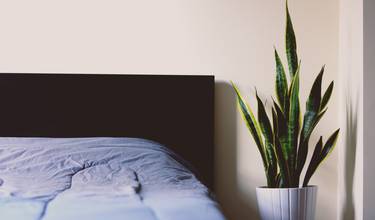Very few people complain about the fact that we have become better at building houses and insulating them more efficiently. This has positive economic implications for our heating bills. In times like these, where we focus greatly on green conversion, it also contributes to reducing CO2 emission for homeowners.
However, in order to avoid a poor indoor climate, this demand homeowners to actively air their homes. A poor indoor climate can cause indisposition, fatigue, headaches, irritation of the mucous membranes of the eyes, nose, throat and respiratory tract, but can also cause or worsen serious diseases. This is concluded by the Danish Health Authority in a report from 2018.
Mould can triple the risk of one-year-old children developing asthma
Storm surges have become less rare and they result in many cases of flooded basements. Neither new nor old houses can keep the water out when it is at its worst. In case of an accident, it is important that all moisture and mould are treated immediately if you want to reduce the risk of small children developing asthma.
An American study, which Videnskab.dk has written an article about, has shown that one-year-old children, who are exposed to mould, are at three times greater risk of developing asthma by the time they reach seven years of age.
The study has observed 176 children from birth until they were seven years old. The children were already considered to be at risk of developing asthma due to their families’ medical background.
However, not only young children are affected when living in a home with mould. It also has major consequences for adults sleeping or staying in rooms with mould.
Good advice for maintaining a good indoor climate
The Danish Health Authority gives five pieces of advice for improving your indoor climate:
Air the rooms
It is not enough to open the kitchen window or the bathroom window. Windows must be opened at both ends of the house so that a draught is made. In this way, the air in the house is renewed most effectively. Preferably, do this 5-10 minutes several times a day.
Use the range hood during cooking
When cooking, the range hood should be used. Older models of range hoods can be as noisy as a small ferry, but it is improved in newer models. Even though they still make some noise, it is important that they are used so that all the particles from the cooking do not end up around the house, where people in most cases go to sleep a few hours later. When finished cooking, you have to air the rooms again.
Clean once a week
Make sure you vacuum-clean often so that dust particles do not blow around in your house. The Danish Health Authority estimates that 9 out of 10 people spend over 13 hours in their homes a day and that results in many inhalations, which is why the dust particles should be kept at a minimum.
Limit the use of candles
Candles can contribute to creating a pleasant atmosphere when the winter comes with its dark evenings, but if you want to optimise your indoor climate, it can be advantageous to store the candles for special occasions. The burning of stearin emits harmful particles in the room, which can be dangerous to inhale in excessive amounts.
Give up tobacco
It is not recommended to smoke tobacco when it comes to maintaining a good indoor climate. There are countless of health arguments for giving up tobacco, but if it is smoked inside, you risk being exposed to so-called passive smoking, even after smoking. Therefore, if you want to smoke, it will make a difference for those you live with that you do it outside.








